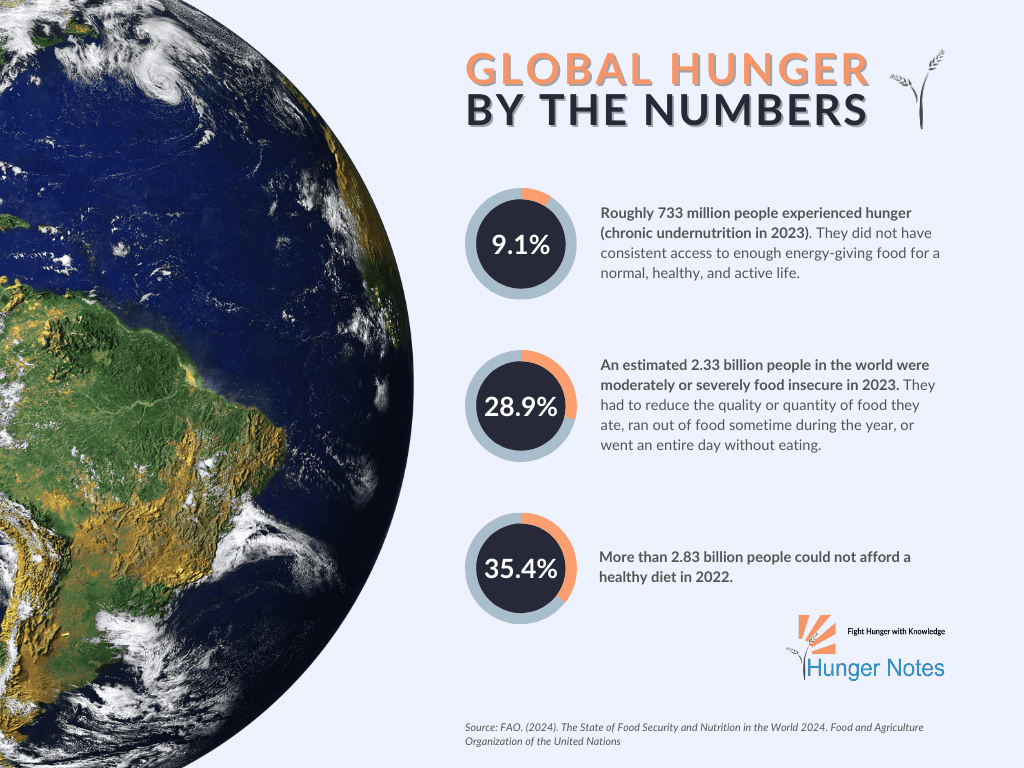Global hunger remains one of the most pressing challenges of our time, with approximately two billion individuals experiencing various forms of malnutrition. The Baha’i teachings offer a unique lens through which to view and address this dire issue. By emphasizing principles such as unity, the intrinsic value of every human being, and the interdependence of the global community, the Baha’i perspective encourages innovative solutions to hunger that transcend mere food distribution. This article explores the Baha’i teachings as a way to inspire a holistic and sustainable approach to feeding the world.
At the heart of Baha’i teachings is the concept of unity. The assertion that humanity is a single entity necessitates an understanding of hunger not merely as an individual or community issue but as a collective one. This unified perspective fosters responsibility among nations to act in solidarity with those who suffer from food insecurity. The potential for collaborative efforts through international cooperation and dialogue is monumental. Baha’is believe that addressing hunger involves not only providing immediate relief but also ensuring systemic changes that prevent future occurrences of food scarcity.
Moreover, Baha’i teachings emphasize the importance of developing a just and equitable global economic order. While poverty is often at the root of hunger, it is essential to analyze the structures that perpetuate inequalities. The Baha’i principle of justice calls for socioeconomic reforms that ensure equal access to resources and opportunities for all individuals, particularly those in vulnerable positions. By advocating for fairer distribution systems, Baha’is encourage communities and nations to rethink how they manage food resources, so that not only is food available, but it is accessible to every individual, regardless of their circumstances.
This leads us to the Baha’i teaching of the oneness of humanity, which underscores that every person is deserving of dignity and respect. Hunger is not merely a matter of food availability; it is an indictment of societal values and priorities. A Baha’i approach to alleviating hunger entails recognizing the inherent worth of every individual and affirming their right to adequate nutrition. This perspective necessitates a more compassionate society—one in which policymakers, business leaders, and ordinary citizens are impelled to act with empathy in their efforts to eradicate hunger.
Furthermore, the Baha’i teachings highlight the critical role of education and knowledge in solving the hunger crisis. Education is regarded as a fundamental human right that opens doors to economic empowerment and innovative agricultural practices. By fostering educational initiatives that particularly focus on nutrition, sustainable farming, and food security, communities can cultivate resilience against the vicissitudes of climate change and market fluctuations. Teaching individuals about their nutritional needs and how to grow food sustainably can transform lives while simultaneously addressing the global hunger crisis.
Another cornerstone of the Baha’i approach to combating hunger is the emphasis on consultation as a method of decision-making. Baha’is believe that true consultation entails sincere and open dialogue among all stakeholders. This approach is essential in food policy formulation, as it recognizes the diverse perspectives and experiences that exist within communities affected by hunger. Involving those directly impacted by food insecurity in identifying the solutions fosters a sense of ownership and empowers communities to actively participate in their transformation. Such cooperative efforts can culminate in innovative, culturally relevant solutions tailor-made to meet the unique challenges of specific populations.
Moreover, the Baha’i teachings inspire a paradigm shift in how we perceive food production and distribution. The spiritual aspect of food is often overlooked; yet in the Baha’i perspective, food is not merely a commodity but a divine blessing. This intrinsic value prompts responsibility in how food is produced and consumed. Sustainable agricultural practices that honor the earth and its ecosystems are crucial not only for ensuring food security but also for promoting environmental stewardship. By nurturing a harmonious relationship with nature, societies can achieve long-term solutions that address both hunger and ecological degradation.
The implications of the Baha’i approach extend beyond geographical boundaries. In an increasingly interconnected world, sharing innovations in food production, technological advancements, and best practices is vital. Baha’is advocate for a global sharing of resources, whereby wealthier nations support those struggling with hunger through technology transfers, training, and direct aid. Such a commitment can engender a spirit of global citizenship, where individuals view themselves as integral parts of a worldwide community, each with a role to play in alleviating human suffering.
In conclusion, the principles embedded within Baha’i teachings provide a robust framework for addressing the multifaceted issue of global hunger. By championing unity, justice, education, consultation, and sustainability, Baha’is present an inspiring vision that transcends conventional approaches. The Baha’i perspective encourages a radical rethinking of our priorities and responsibilities towards one another, compelling us to adopt innovative strategies that ensure every individual has access to the nourishment they require. As we contemplate the future and the potential to feed two billion more, the call to action is clear: we must harness these teachings to create a world where hunger is a relic of the past and every person can thrive.
